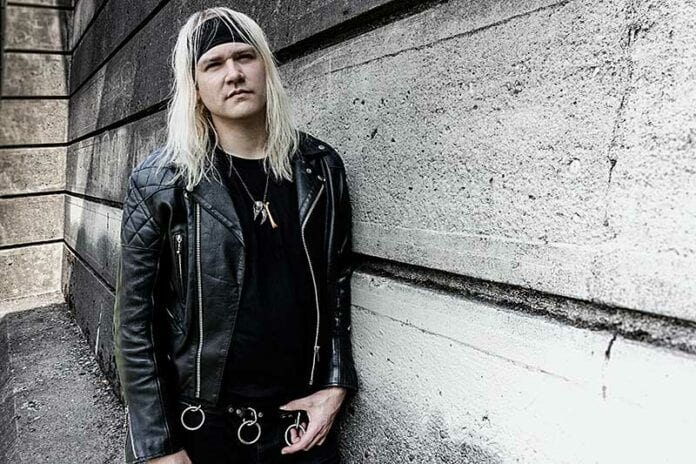
INTERVIEW WITH JOEL GRIND BY KEVIN STEWART-PANKO
PHOTOGRAPHS BY CHELSEA ENGLIZIAN
Primal Future: 2019 may be the sixth Toxic Holocaust full-length, but six albums is just the tip of the discographic iceberg for the Portland crossover thrash institution. Numerous EPs, demos, splits, live albums, and compilation appearances, in addition to those six albums, round out and comprise the 20 years of Toxic Holocaust’s recorded history. Ironically enough, Primal Future: 2019 has the most in common with the band’s earliest releases, including first two albums, 2003’s Evil Never Dies and 2005’s Hell on Earth. This is because founding member Joel Grind has reverted back to the way things used to be, back when Toxic Holocaust was his baby and his baby alone—a solitary pursuit where he played all instruments, did all vocals, and handled all engineering, production, mixing, and mastering responsibilities.
Whether Grind’s methodology is viewed through the lens of musical totalitarianism, artistic necessity, workaholic-ism run amok or what have you, the success Toxic Holocaust has experienced can’t be denied, as he has navigated the band—which can consist of either him alone or various part-time or temporary full-time musicians—to a slow burning series of success culminating in the new album seeing the light of day on eOne, one of the closest things to a major label out there that’s not a major label. We connected with Joel via a shaky Skype connection to ask him about the tau of solitude, the familiarity of the guitar, and the prescience of 80s action movies.
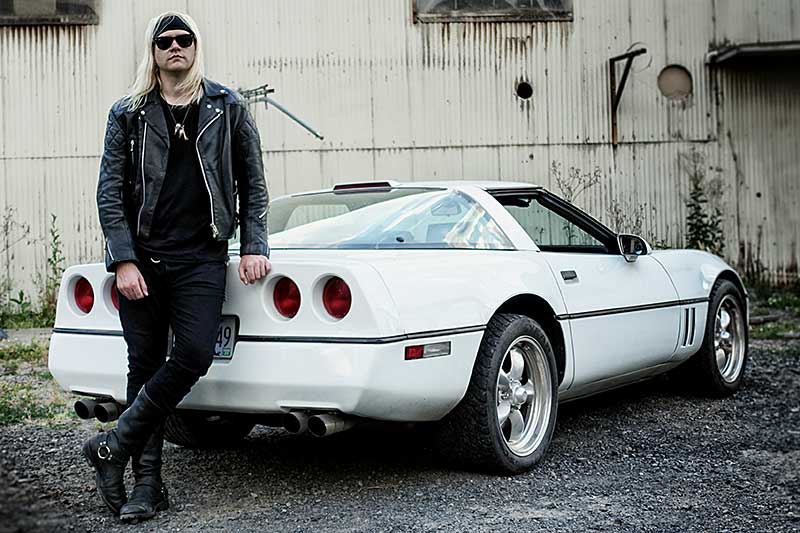
What brought you back to doing the new album completely alone after a few years of having live members play on records?
We were in between labels, and I was self-financing this record. I was doing demos over the course of a couple years and liking the way they were turning out, and from that I got that spark again from doing it the way I used to do it when I first started the band. I figured it’s the 20th anniversary of Toxic and doing a bringing it back to the roots kind of thing. On top of that, there’s a little backstory on why it logistically would have been a lot more expensive. The other band members I had for live stuff [drummer Nick Bellmore and his guitar playing brother, Charlie] live in Connecticut, so it would have been really difficult to fly them out here on my own dollar and have them put up in hotels and stuff. It started as kind of a demo phase thing and turned into feeling like fun and like the way I used to do records. Plus, a lot of fans have been asking me, ever since I did the Yellowgoat record, which is an album that I did all on my own, when I was going to do a Toxic record like that again. It was kind of an all-encompassing thing.
“I GOT THAT SPARK AGAIN FROM DOING IT THE WAY I USED TO DO IT WHEN I FIRST STARTED THE BAND.”
And there were no hard feelings with the other dudes?
No. The band started as a solo project, and I’ve had a revolving door of live members for the first 15 years or something. I think it was known going into it that something like that could happen, so there were no hard feelings.
Did those guys, or anybody else, contribute anything to the writing?
No. I know it sounds like I’m a dictator or something, but I’ve always just written all the music for Toxic. That’s always how it’s been. I had a very clear vision of how I always wanted it. They [the Bellmore brothers] are great musicians and good songwriters in their own right, but they knew going into it that I already had all the ideas for everything. Sometimes it can get into a situation where there are too many cooks in the kitchen and you can lose focus.
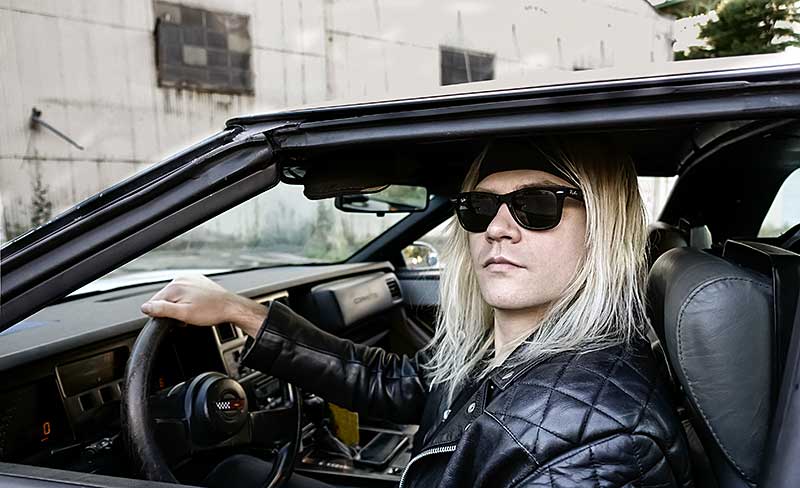
In going back to doing everything yourself, did any of it feel different for you?
Yeah. I had to relearn playing drums because I hadn’t played them in a long time. That was one thing. There’s a whole other hurdle when you’re recording yourself—drums especially because it’s the first thing that goes down on the record—about how it’s hard to run over, start the recorder and then play the songs, listen back and hopefully get a good take. It’s a little more challenging, but it was also cool because I recorded it at home so I could work on it anytime I wanted to. That was an upside, not having to call people to meet at a certain time to record.
“I WANTED TO MAKE THE ARRANGEMENTS BIGGER, FULLER, AND A LITTLE BIT MORE EXPANDED UPON FROM WHAT I’VE DONE IN THE PAST.”
Primal Future: 2019 has some of longest Toxic Holocaust songs you’ve ever written? Was that by design or did it just happen?
No, it was conscious. Every record I try to make sound like Toxic, but I try to do something to make that record sound different so it’s not repeating the same thing over and over. For this one, I wanted to make the arrangements bigger, fuller, and a little bit more expanded upon from what I’ve done in the past. The last record was full of very short songs, most of them were a minute and a half, and on this one I wanted to do a contrast to that. So, I definitely went in with the intention of doing that.
Being the lone member, is writing those longer songs difficult?
Yeah. It’s funny, one good thing about being in between record labels at that time is that I had time to work on stuff and let things sit back and brew and make sure I liked them. If I got stuck on a part, I could put it down and work on something else. I wasn’t super under the gun, so that was nice and allowed me to expand a little bit more. Sometimes when you’re working on something at the moment, you get stuck on a part and you don’t know where to go. You let it sit and come back to it a month later or something and you’re like, “This is what I should do here. That was so obvious!” You need that time away sometimes.
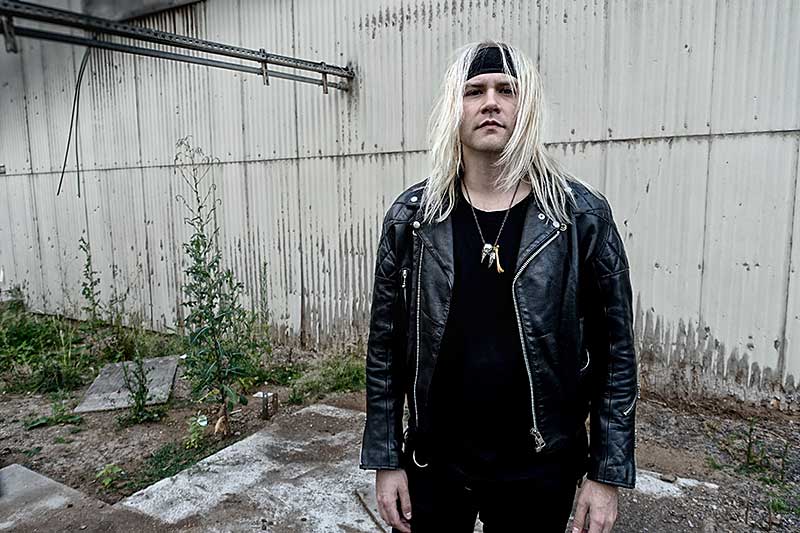
When it came time to do your own production, mixing, and mastering of your own album, were you looking at things differently from the past?
Yeah, that was one thing that I found after doing the first two records the way I did. Back then, I was totally flying by the seat of my pants and not really knowing what I was doing, but it was cool to take the same spark that started the band and filter through the experience I’ve had doing this all these years. That was cool because I was able to get more of the sounds that I had in my head out, when before I wasn’t sure how to achieve them. In doing the whole thing, it came full circle for me.
At any point did you say or think to yourself, “Maybe it would be good to have a second pair of ears to help out?”
I definitely had those moments, especially when you hear the same stuff over and over, you can really start to burn out and lose perspective. That’s kind of where having that space helped out. But at the end of the day, because it was self-funded and since I do production, mixing, and mastering for a living and I figured that I might lose that perspective a bit, I wrote all the songs, recorded them, and then did rough mixes. Then, I took some time away and came back and listened back to them. If anything jumped out at me that needed changing, I had time to fix that before getting to the actual mixing stage. When I did get to the mix, it was with fresh ears.
How long did it take to do all this?
Some of these songs, or at least the skeletons of them, date back to the last record. I wrote extra songs on that record. The reason why there’s so much time between the last record and this one is because I started my own business. And, as anyone who is starting up a business will tell you, you don’t want to turn any clients down and when things start rolling you don’t want to say no to work. The record kept getting pushed back and pushed back because I was building my business. That was a whole thing, there was the relearning of the drums, and I moved into a new house. There was all kinds of shit happening in that time period between albums.
The last couple of times I’ve seen Toxic Holocaust live, you’ve been playing bass. How long has that been going on?
Right now, I’ve been playing bass in the live band for about five years, and that was mainly due to the guys I was telling you about from Connecticut who I was jamming with. Because they’re brothers and the bass stuff for Toxic is a lot easier, they could jam together and I could just fly in before a tour or whatever and we could jam together. It made a lot more sense logistically for him to play guitar, plus he’s a really good guitar player.
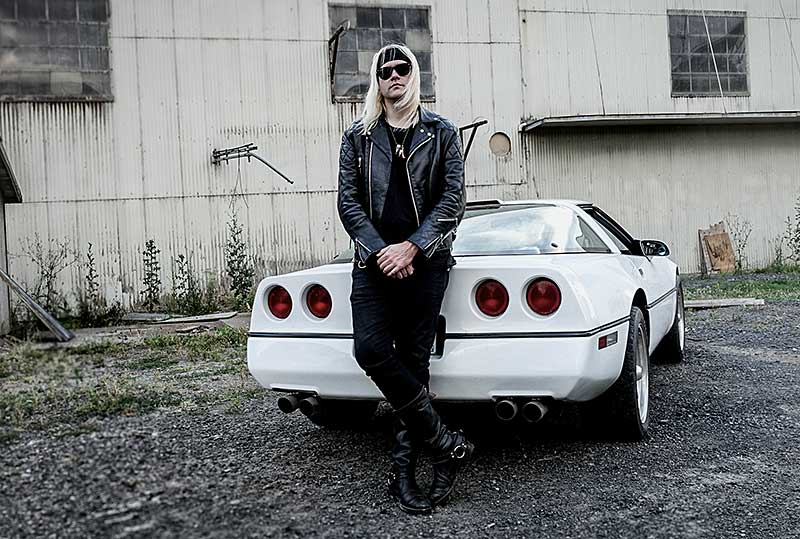
With that in mind, was the new record written on guitar or did you try and write any of it on bass?
No, I still wrote it on guitar. When I try to write, anything else but a guitar still feels weird to me. I guess that’s just my way and how I do creative things. I need a guitar. Even when I do more synth stuff for soundtracks, I do a lot of things on guitar because that’s the way I can get my ideas out quickly.
How did you end up getting picked up by eOne?
The record was 100 percent complete by the time I signed to eOne. Our manager was shopping the finished record around. I think the way he did it was that he sent it out like a teaser or something, but he was shopping it around. We got some good offers, but eOne seemed like the best one. Their European distribution is really good, so that was a big deciding factor on that.
Do you find there’s more interest in the band overseas?
Yeah. Europe, for some reason for the kind of music we play, they’re just diehards for that kind of stuff over there. With all the festivals and stuff they have, it’s great over there. It comes and goes in the US and Canada, and right now it’s really good over here as well, but Europe is one of those things where it’s steady. It’s always good for us there.
“IT’S BASED ON THE IDEA OF A NUKING OURSELVES BACK TO THE STONE AGE AND STARTING OVER WITH SOCIETY AND GOING BACK TO PRIMITIVE TIMES.”
Is Primal Future: 2019 a concept record or more thematically based?
It’s thematically based under the umbrella of a post-apocalyptic future, but it’s not a unified concept album or anything. It’s based on the idea of a nuking ourselves back to the Stone Age and starting over with society and going back to primitive times.
It’s funny you mention that because I’m big into 80s/early 90s action/sci-fi movies and in the past couple days I’ve rewatched Time Cop and The Terminator and seeing how elements of the future depicted in those movies is sort of happening now is trippy.
100 percent, man! And that’s exactly why it’s called Primal Future: 2019 because the future depicted in all those movies is right now. There are so many post-apocalyptic movies that take place in 2019, it’s hilarious and that’s what I was going for with that where it’s an 80s outlook on what the future might be.
The album cover looks like a cross between Ed Repka and synthwave.
It’s funny, I wasn’t going for that, but when people started pointing that out I was like, “Hmm, yeah, I could see that!” like with the grid lines and stuff like that. My thinking on it was that I wanted it to look like one of those post-apocalyptic VHS covers where it draws you into that whole world.
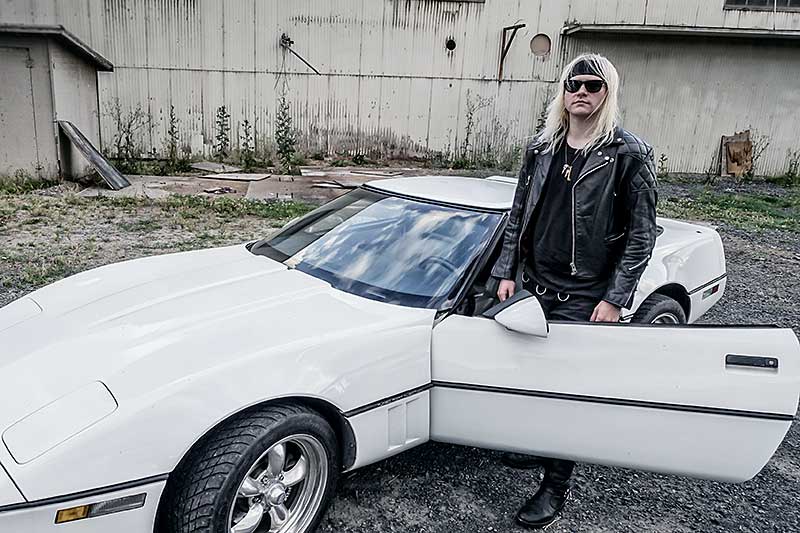
Was the cover done under your advisement, or did you let the artist, Steve Crisp, run wild?
It was like 50/50. He would show me some sketches, and I would tell him what I thought was cool in them and whatever. I already had the color scheme in mind and other than that, he nailed it. It was really cool because he was really receptive to what I wanted and understood what I was talking about and going for. I was in contact with other artists and getting other sketches and stuff, but they just weren’t coming together like it did with this guy.
Going forward, are you planning on employing the services of the Bellmore brothers, and do you have any different plans for the future now that you have eOne in your corner? Well, those guys are playing with Dee Snider in his band now, so that was a factor, too. They were just so busy that it was hard to book shows around that as well. Toxic Holocaust is an open door, they’re awesome musicians, and I’d love to play with them again. So, if schedules line up, then absolutely! Right now I’m playing with some guys from Portland [drummer Tyler Becker and guitarist Eric Eisenhauer, both from thrash band Weresquatch], which is cool because it’s the first time I’ve ever had something like a local band. It’s nice to be able to go to practice once a week and do it like that. eOne is a bigger label, but it doesn’t feel totally disconnected, which it can sometimes get like when you graduate to a bigger label and you feel like you’ve lost that DIY vibe. I can still contact them, they still send stuff to me for approval, and it’s not like “this is how we do things here,” which was a big concern for me. I don’t like to have it get to where I get steamrolled by what a label wants to do as opposed to what the band wants to do. I made sure we still had creative control and all that. I’ve been pretty consistent with the way things have happened over the years, regardless of what happens in the back end. I feel like I try to keep a pretty consistent end product and I like to work with who I work with.




















